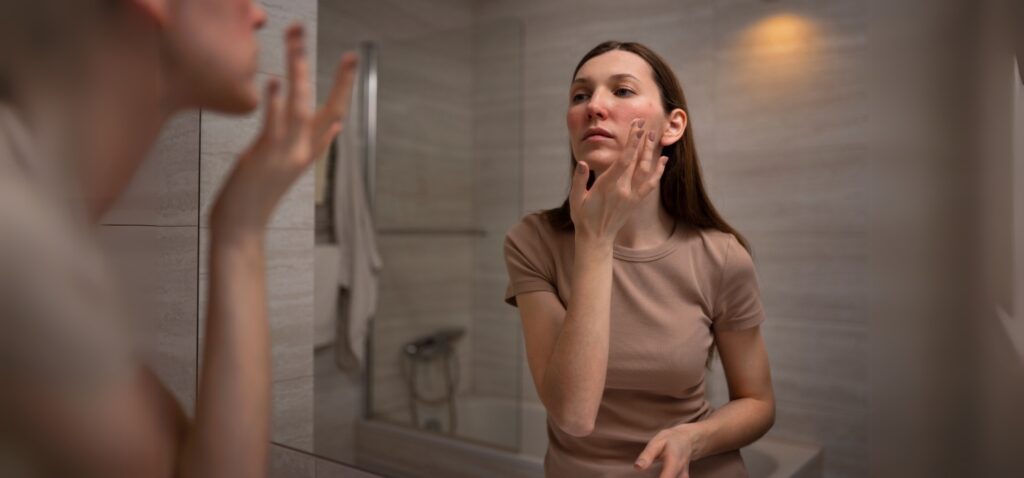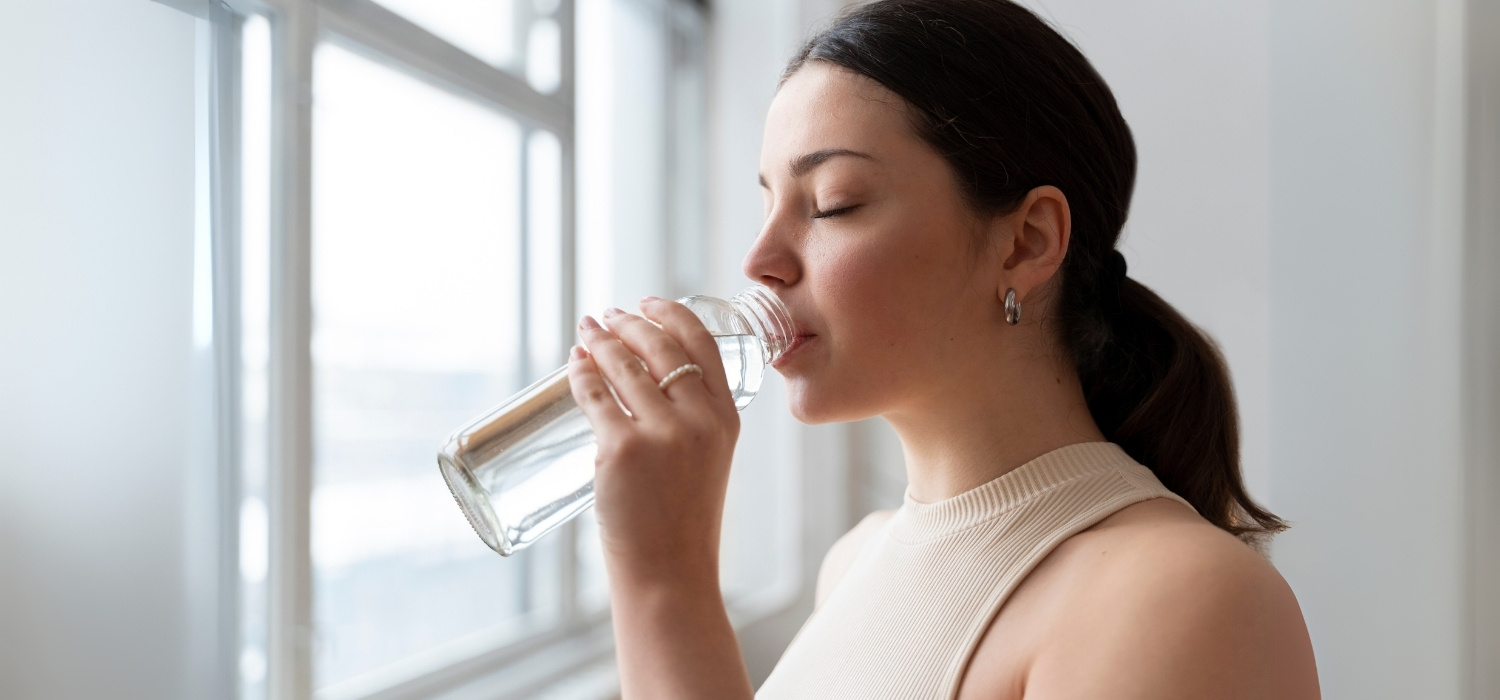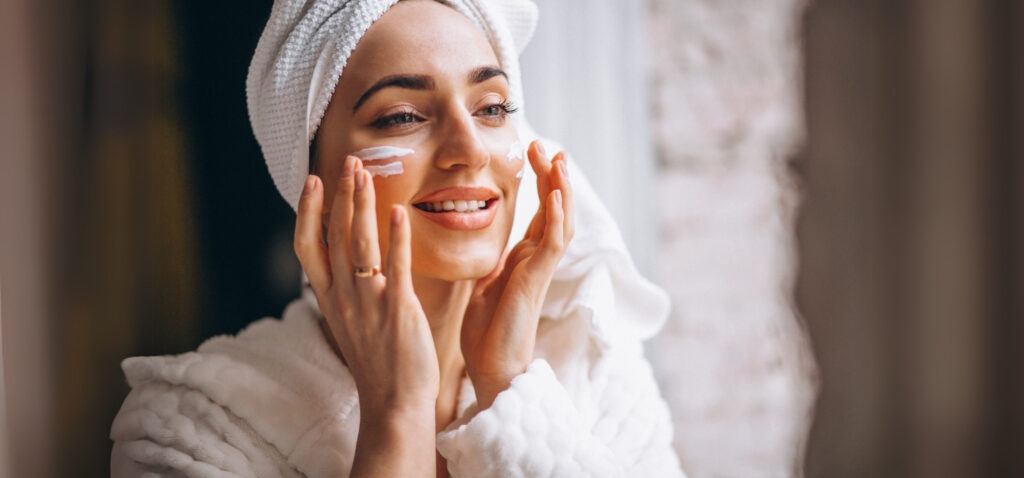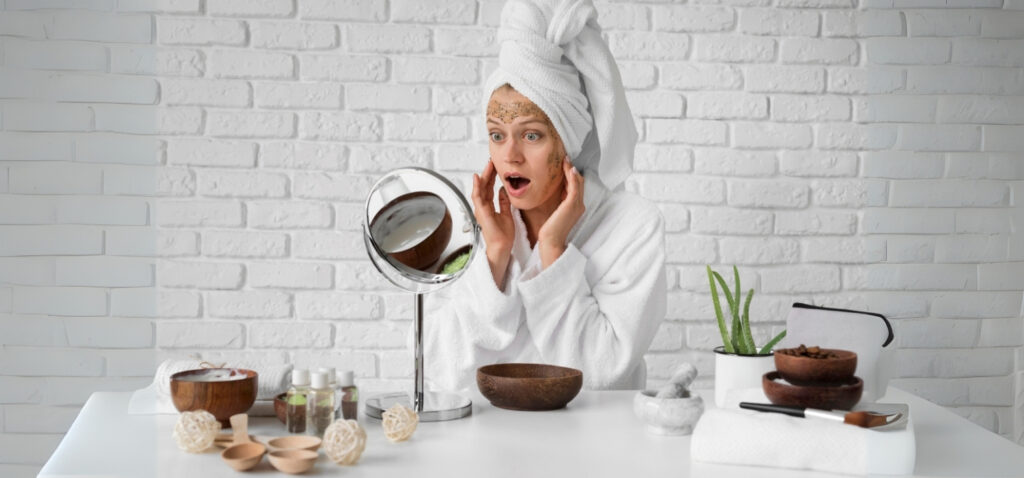Ramadan Mubarak!! As we enter this blessed month of reflection and spiritual growth, let’s also talk about keeping our skin happy and hydrated. Because let’s be honest, while we’re focusing on our inner selves, sometimes our skin decides to throw a little dryness tantrum.
Fasting during the day means less water intake during daylight hours, and we can definitely see that on our skin if we’re not careful. But don’t worry, achieving that radiant Ramadan glow is within reach! Think of this as your friendly guide to navigating Ramadan skincare like a pro, ensuring your skin stays plump, dewy, and shines brighter than the Ramadan moon.
Why Does My Skin Suddenly Feel Like the Sahara Desert During Ramadan?
You’re not alone if your skin feels drier than usual during Ramadan. The most obvious reason? Dehydration. When we fast from dawn till dusk, our bodies naturally get less fluid during the day. Our skin, being the largest organ, often shows the effects first. Imagine a plant that’s not getting enough water. It starts to look a little droopy and, well, thirsty. That’s what happens to our skin as well.

But it’s not just about water. Other things can sneakily contribute to dryness, too. Our diets can shift during Ramadan, and while Iftar feasts are amazing, sometimes we might indulge in richer or saltier foods, which can impact our overall hydration. Then there’s sleep – Taraweeh prayers, Suhoor preparations, and the change in routine can sometimes mess with our beauty sleep. Less sleep can also disrupt our skin’s natural moisture barrier. Finally, let’s not forget the environment. Hot and dry weather, or even air conditioning (a blessing and a skin-drying culprit!), can further steal moisture from our skin.
Don’t Panic!
Okay, so we know the challenges. Now for the exciting part: how to fight back and keep your skin feeling good throughout Ramadan. Think of these as your secret skincare weapons, ready to combat dryness and restore your glow.
Hydration Starts From Within (Drink Up!)
Let’s be honest, true hydration starts from the inside out. And Suhoor, that pre-dawn meal, is your hydration goldmine. Don’t just grab a quick bite and rush back to sleep. Think strategically about what you consume to set your skin up for success during the fasting hours.
First and foremost: water, water, water! Seriously, make it a point to drink a good amount of water at Suhoor. Imagine it as filling up your skin’s water reservoir for the day ahead. Beyond just water, load up on water-rich foods! Think juicy fruits and crisp veggies packed with moisture. Watermelon, cucumbers, berries, oranges, and leafy spinach are all amazing choices.

Ditch the sugary drinks and opt for hydrating herbal teas instead. Chamomile, hibiscus, or even green tea (in moderation due to caffeine) can contribute to your daily fluid intake and are often packed with beneficial antioxidants too. One last tip for Suhoor: Go easy on the salt shaker. Salty foods can draw moisture out of your body, so keeping your Suhoor meal lighter on the salt will help you retain hydration throughout the day.
When it’s time to break your fast at Iftar, keep hydration in mind then too. Starting with dates and water, the traditional way to break your fast helps a lot with hydration. Dates provide natural sugars for a gentle energy lift, and water… well, water is essential. Consider starting your Iftar meal with a hydrating soup or broth. It’s gentle on your stomach after a day of fasting and helps replenish fluids. And don’t try to gulp down all your water at once at Iftar (a mistake I usually make). Sip water gradually throughout the evening, in between prayers, family time, and everything else. Keep a water bottle handy as a visual reminder to keep sipping throughout the night.
Level Up Your Skincare Routine
Let’s make sure your skincare routine is fully equipped to tackle the Ramadan hydration challenge. Gentle cleansing is your best friend. Harsh cleansers can strip your skin of its natural oils, worsening dryness. Reach for gentle, hydrating cleansers instead. Creamy cleansers, micellar water, or oil-based cleansers are all good options. Try to avoid anything that feels too foamy or stripping on your skin.
Next up, toner. A hydrating toner is a secret weapon. Look for toners with ingredients like hyaluronic acid, glycerin, or soothing rosewater. Apply it immediately after cleansing to lock in that initial moisture and prep your skin for the next steps in your routine.

Serums deliver concentrated hydration directly to your skin. For Ramadan, hyaluronic acid serums are your go-to. Hyaluronic acid is like a moisture magnet, attracting and holding water within your skin. To maximize absorption, apply your serum after toner while your skin is still slightly damp. And never, ever skip moisturizer, especially during Ramadan. It’s crucial for sealing in hydration and creating a protective barrier. Choose a richer, more emollient moisturizer than you might typically use, particularly at night. Look for ingredients like ceramides, shea butter, or squalane, known for their moisturizing power.
Speaking of nighttime, our skin goes into repair and regeneration mode while we sleep, making your nighttime routine prime time for extra hydration. Consider using a sleeping mask or a richer night cream to boost your skin’s overnight hydration while you rest. And even if you spend more time indoors during Ramadan, sunscreen is still a must during the day. Sun damage can further dehydrate your skin and speed up ageing. Apply a broad-spectrum sunscreen every morning, even on cloudy days.
Finally, don’t forget your lips. They are super susceptible to dryness. Keep a hydrating lip balm with you at all times, and apply it liberally throughout the day, especially before bed, to prevent chapping.
Bonus Tips for Extra Glow
Beyond the essentials, a few extra tweaks can enhance your Ramadan skincare routine. While a hot shower might sound relaxing, hot water can strip your skin of moisture. Opt for lukewarm or even cooler showers to help your skin retain hydration. If you live in a dry climate or use air conditioning frequently, consider using a humidifier, especially in your bedroom at night. It adds moisture back into the air, which can be incredibly beneficial for your skin.

Most importantly, listen to your skin. Pay attention to how it feels. If it feels tight or dry, adjust your routine accordingly. You may need to apply moisturiser more frequently or incorporate a facial oil into your routine for extra nourishment.
Remember, Ramadan is a time for reflection and peace. Don’t stress too much about skincare! Focus on the spiritual blessings of this month, knowing that with these simple adjustments, you can keep your skin hydrated and glowing throughout this beautiful time.




